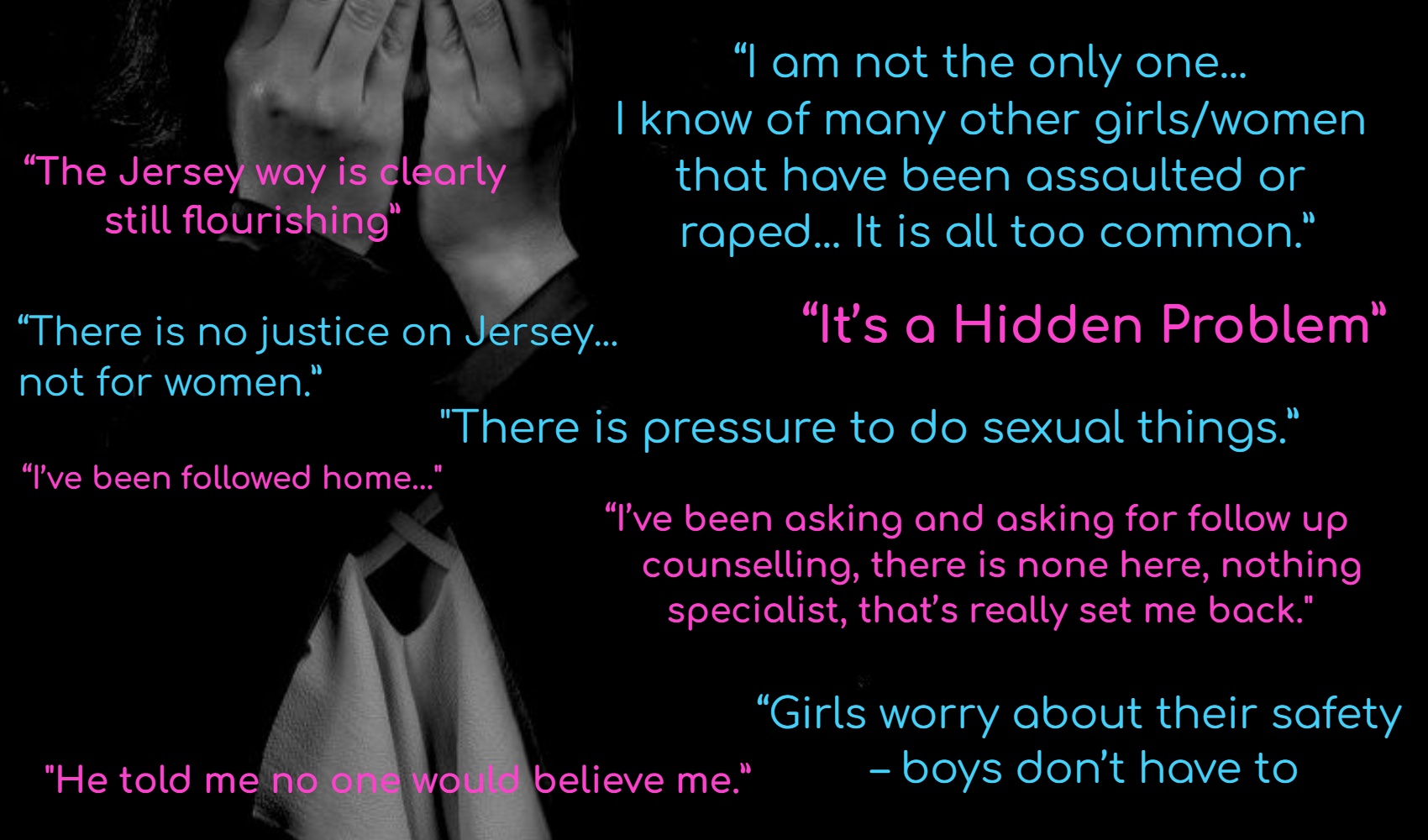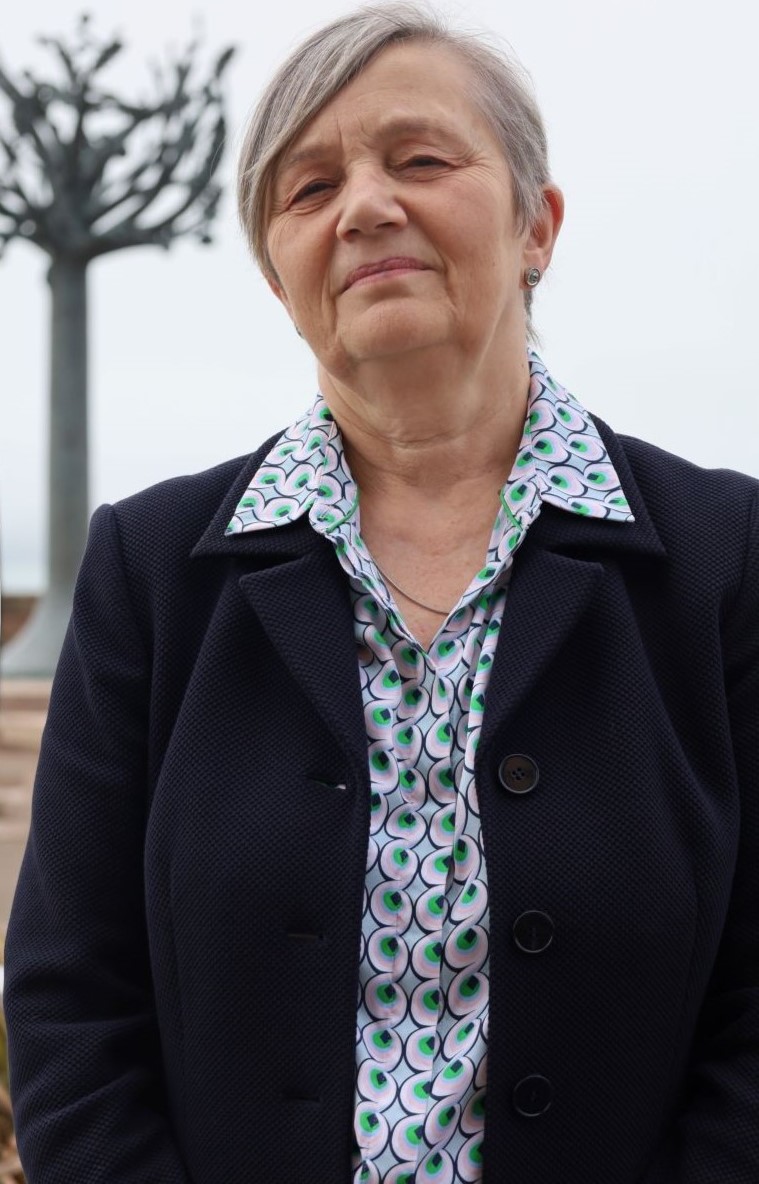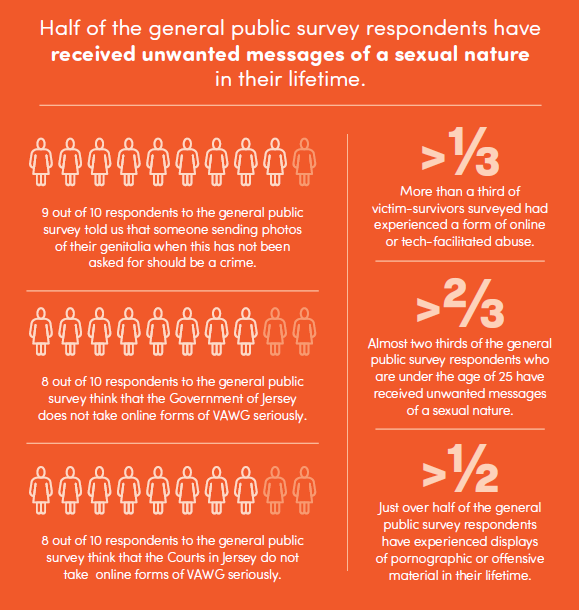


The initial stages of creating new laws which criminalise tech-facilitated abuse, including of a sexual nature, are set to be finalised within months.
Home Affairs Minister Mary Le Hegarat provided an update on the legislative progress in response to questions from the Children, Education, and Home Affairs Scrutiny Panel this week.
Her answer builds on announcements made earlier this year that cyber-flashing and cyber-stalking were due to become specific offences in Jersey law before the end of 2025.
The need for these new pieces of legislation were flagged in the Violence Against Women and Girls Taskforce report, released last November.

Pictured: The Jersey Independent Taskforce on Violence Against Women and Girls (VAWG) has published its research findings last November.
Following months of research, which included gathering testimonies from victim-survivors and hundreds of islanders, the report made 77 recommendations to Government and other agencies.
It also found that "gaps" in Jersey's legislation were "undermining the ability of the criminal justice system to protect victim-survivors or effectively manage perpetrators".
The Government accepted all 77 recommendations, and Deputy Le Hegarat then laid out her plans to criminalise cyber flashing and the use of deep fakes through amendments to the Sexual Offences (Jersey) Law 2018.
In her update this week, she said: "Officers are currently working on legislation drafting instructions for the following legislation developments, which is anticipated to be finalised by January 2025."

Pictured: Home Affairs Minister Mary Le Hegarat is responsible for bringing through new laws.
These developments include strengthening legislation to address the act of taking an "intimate image" of someone without their consent and creating a new offence of distributing or threatening to distribute an intimate image of someone without their consent.
Deputy Le Hegarat said these "intimate images" will include sexually explicit deep fakes.
Along with the creation of an offence of cyber-flashing, victims will also receive additional protection through a new expedited process where they can quickly seek a court order to prevent spread of those images.
Cyberstalking – monitoring, following, or spying on someone using technology – is also due to be criminalised under a new piece of legislation which specifically addresses stalking.
She said: "We recognise that perpetrators of stalking often use online and offline tactics and we will ensure cyberstalking behaviours are captured by legislation.
"There is lots of legislation coming through within the next period of time, and we are looking to go to drafting in January."

Pictured: The VAWG report laid bare the extent of online abuse faced by local women and girls.
Deputy Le Hegarat also outlined plans to strengthen data collection, education, expertise and regulation around online and technology-facilitated abuse.
The VAWG Taskforce's report found that half of general public survey respondents had received unwanted messages of a sexual nature in their lifetime – and nine out of ten said receiving unrequested images of genitalia should be a crime.
Comments
Comments on this story express the views of the commentator only, not Bailiwick Publishing. We are unable to guarantee the accuracy of any of those comments.